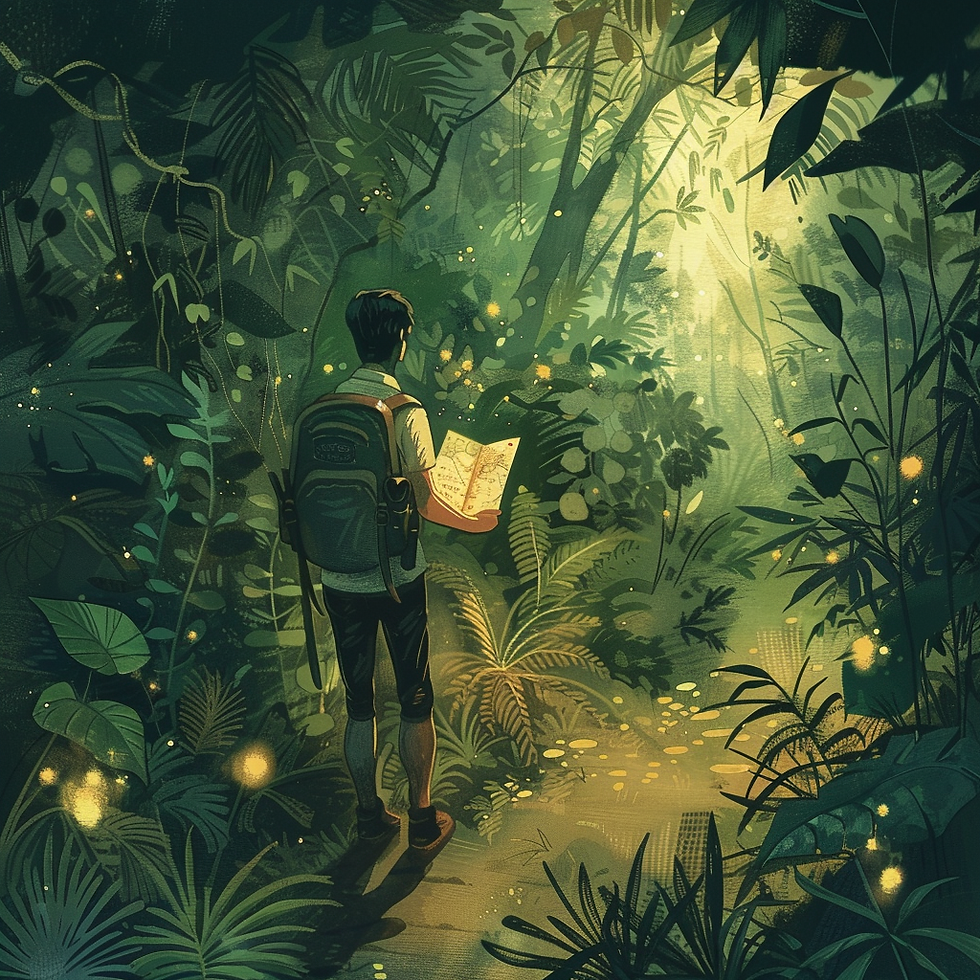From Struggle to Insight: My Journey into Meditation
- patrikharbusch
- 24. Juli 2024
- 3 Min. Lesezeit

"In the midst of winter, I found there was, within me,
an invincible summer. And that makes me happy.
For it says that no matter how hard the world pushes
against me, within me, there’s something stronger –
something better, pushing right back."
Albert Camus
In talking with people who have a long-term meditation practice, I've noticed two primary paths that lead them to this transformative journey.
Paths to Meditation
The first, and most common, is through some form of struggle - be it physical, emotional, or mental. This is what the Buddha called dukkha, often translated as suffering or unsatisfactoriness, and for many this can even manifest as a subtle sense of dissatisfaction or unease in the background that we are almost unaware of, a common human experience that the practice of meditation can help to alleviate.
The other, less obvious, but increasingly common motivation for starting a practice is curiosity and the search for truth. However, as I've seen many times, and as has happened in my own journey, the two paths can also merge.
We may initially come to meditation to reduce stress, deal with emotional difficulties or physical pain, and the deeper we go into the practice, the more we get a sense of the vast potential of meditation for exploring the nature of reality, which can become its own motivation for practice.
Early Experiences of Awareness
From my youth, I remember moments of sudden shifts in awareness where everything seemed vividly clear, like waking from a dream. I would be doing nothing in particular, just sitting in my room, and suddenly my perspective would shift, and I would see everything around me with fresh eyes, as if for the first time.
These fleeting experiences left a lasting impression, even though I had no method of intentionally returning to that state. This sense of something profound waiting to be discovered stayed with me over the years, even though I didn't actively pursue it.
The Turning Point
In my late 20s, while living in London, I came across a TED Talk by Headspace founder Andy Puddicombe. I was already familiar with meditation as a stress-relief tool, having tried it briefly without much success.
But Puddicombe's talk resonated deeply with me, particularly his point, based on scientific findings from a Harvard study, that we spend about 50% of our waking lives lost in thought. This revelation struck me as a significant problem facing many of us, and one worth addressing. Thus began a renewed curiosity about meditation.
A New Approach to Meditation
Seeing meditation as a promising method for taming the monkey mind, I decided to give it another try, committing to a 30-day routine of short daily sessions. The effects were life-changing.
For the first time, I experienced how often my mind wandered and found it almost impossible to stay with my breath for more than a few seconds. This practice also reconnected me with my body, something my analytical career had distanced me from. The simple act of feeling the sensations of my buttocks on the seat and my feet on the floor was like coming home.
Deepening the Practice
As my interest and curiosity grew, I began reading extensively about meditation and listening to podcasts with renowned teachers and scientists. This blend of theory and practice solidified my confidence in the path and allowed me to explore different styles of meditation in greater depth.
My First Meditation Retreat
After a few years of practice, I attended my first long silent Vipassana retreat. This experience was very important for my journey, offering a profound insight into the potential of the mind and the possibilities of meditation.
Having witnessed the transformative power of retreats for many participants over the years, I believe that such retreats can be beneficial early in one's meditation journey, serving as a powerful proof of the path's potential and motivation to continue the practice.
This insight is why I began organizing meditation retreats for family and friends a few years ago, hoping to share the tools that have been most beneficial in my life.
The Importance of Transformative Experiences
If it weren't for the immediate benefits and potential I felt on my second attempt at meditation, I might have given up. In addition, the transformative experience of my first retreat has further strengthened my commitment to the practice.
The deep insights that can be gained early on in the practice can help keep someone on the path. This is why integrating such experiences into the early stages of meditation training can be so powerful, fostering a deeper connection and sustained commitment.


